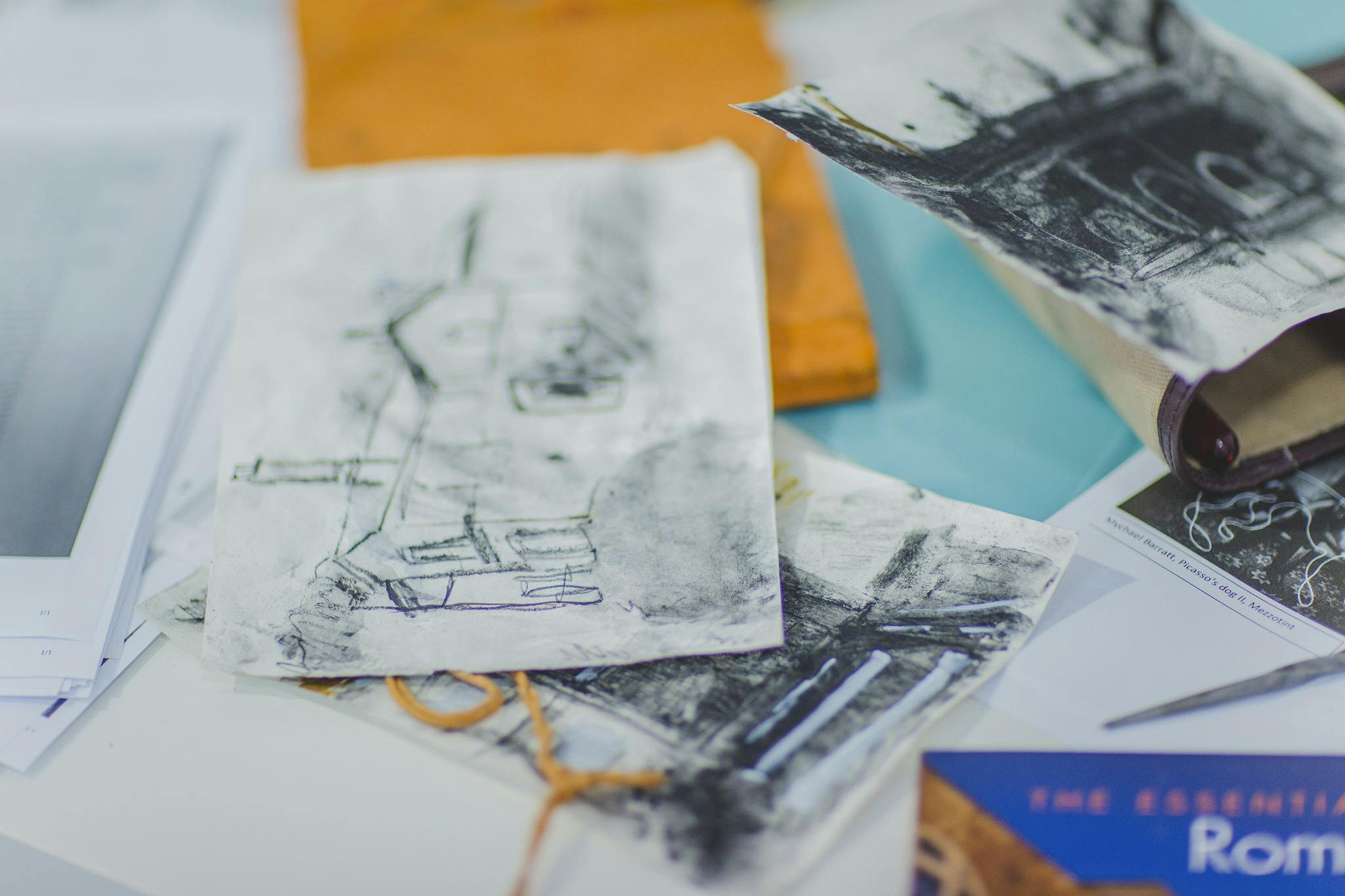Latest News
Curating your postgraduate portfolio
Thursday, 30 November, 2023 — As an applicant to a masters course, you will have developed a body of work or project that is representative of your achievements as a creative practitioner. We want to begin a conversation about how your work can move to the next level, your portfolio work aids this discussion.
<p>As an applicant to a masters course, you will have developed a body of work or project that is representative of your achievements as a creative practitioner. We want to begin a conversation about how your work can move to the next level, your portfolio work aids this discussion.</p>
<p dir="ltr">It is important to include a range of creative work that demonstrates your suitability for the MA course you have applied for. You should include visual material that shows your past achievement, but also your current interests and concerns. The most successful portfolios are the ones that show that you can be tenacious and open-minded when you explore a subject that you’re curious about or have a personal interest in. </p>
<p dir="ltr">Your portfolio should represent your current practice and we appreciate that for some candidates, an MA application represents a change in direction and some work may only be in a developmental stage. We also welcome applications from those currently in their final year of undergraduate study, where your portfolio may be representative of work in progress. This is absolutely fine, as we are just as interested to learn about your ambitions for future study with us.<br /></p>
<ul><li>Physical examples of practice (printed matter, objects, painting, sculpture etc.) are acceptable at interview; for bulky or larger pieces of work that are too difficult to transport, our preference is for these to be shown as photographs, or evidenced through digital photographic documentation. </li><li>Sketchbooks: these should demonstrate your creative thinking and problem solving skills. </li><li>Film, video, animation and sound work should be no more than 2-5 minutes long, and available on a suitable format for presentation at interview. This could be on a laptop, memory stick, or as a digital file. </li><li>If you are submitting a showreel of moving image related work, this should be no longer than 5 mins duration. </li><li>Include any links to relevant websites or blogs that contain your work. </li><li>Include any relevant examples of written work, as appropriate.</li></ul>
<p dir="ltr">Your portfolio should show the qualities of your work, not the quantity. Think of your portfolio as a conversation centred around your practice and proposed research. </p>
<p dir="ltr">Dependent on your intended area of study, we suggest you include between 15 to 20 examples of your best work; and/ or a showreel of approximately 3 minutes duration for moving image related content. Be selective and organised. Gather together all the recent work you have produced and systematically make decisions about what to include. Avoid repetition and don’t overload your portfolio; it should be clearly laid out and easy to look through. We suggest that you spread the highest quality work throughout your portfolio, as the review of your portfolio may not be sequential. Think about the creative practitioners or ideas that have influenced your work and how your practice might be developed in the future.<br /></p>
<p dir="ltr"><strong>Once your portfolio is ready, we ask that you submit it digitally by completing our portfolio submission form which you can find </strong><a href="https://forms.student-crm.com/Forms/view/0ccf153e-0126-4134-8822-4d63cd49a6d3"><strong>here</strong></a><strong>. </strong></p>
<p dir="ltr">You can also bring your portfolio to us in person, instead of submitting it online. You can do this by attending one of our upcoming <a href="https://www.aup.ac.uk/open-days">postgraduate events</a> or contact <a href="mailto:admissions@aup.ac.uk">admissions@aup.ac.uk</a> to arrange a 1:1 discussion with one of our academic team.<br /></p>
<p dir="ltr">If possible, visit the university before you apply. Attend an <a href="https://www.plymouthart.ac.uk/open-days">Open Day</a> to find out about the courses and the university or, if this is not possible, arrange a chat with an academic, or check out our <a href="https://www.aup.ac.uk/virtual-tours">virtual tour</a>. You can also request a prospectus which contains detailed information about the university, our <a href="https://www.plymouthart.ac.uk/resources">industry-standard facilities</a>, and all our courses. Think about which Masters course you want to study and be prepared to discuss the reasons for your choice. Organise your portfolio so it is presentable and is arranged in the order you want to talk about it.</p>
<p dir="ltr">If you would like to have a discussion about postgraduate study at Arts University Plymouth, you are welcome to arrange a time to speak to one of our Admissions team or one of our academics.<br /></p>
<p dir="ltr">Our team can help you think about your motivations for study, your portfolio of practice and your MA proposal, alongside your ambitions for the future. We can also provide you with an opportunity to ask about the course structure and other questions you might have about studying your MA with us.</p>
<p>To find out more about postgraduate study, book a place at our next <a href="https://www.plymouthart.ac.uk/open-days">Open Day</a>.</p>
